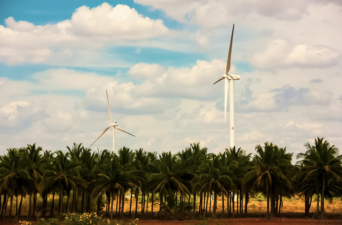 Arabic is the fastest growing language on microblogging site Twitter, with a 2000 % increase in Arabic postings logged over the past 12 months.
Arabic is the fastest growing language on microblogging site Twitter, with a 2000 % increase in Arabic postings logged over the past 12 months.
This week Saudi billionaire Prince Alwaleed bin Talal’s Kingdom Holding Company (KHC) announced a $300 million investment in social media site, Twitter. This isn’t radical corporate evolution: apparently the shares were direct-purchased from one of the micro-blog’s co-founders following months of negotiations.
The tweeted news was quickly christened with its own hashtag as it started trending on the micro-blogging website.
 Alwaleed bin Talal is an Arab media mogul with most of his investments in traditional outlets like print and television. He is the second largest investor in both global media company Newscorp and, within KSA, the Arab world’s leading publishing company, the Saudi Research and Marketing Group. Arabian Business magazine has stated his wealth at more than $21 billion.
Alwaleed bin Talal is an Arab media mogul with most of his investments in traditional outlets like print and television. He is the second largest investor in both global media company Newscorp and, within KSA, the Arab world’s leading publishing company, the Saudi Research and Marketing Group. Arabian Business magazine has stated his wealth at more than $21 billion.
His strategy is “to invest in promising, high-growth businesses with a global impact,” according to a statement from Kingdom Holding, which quoted the prince.
Critical bloggers are asking how this will affect Twitter’s “editorial integrity”. Whenever a media outlet changes hands, impacts of new ownership on content are questioned. But is it even possible for an owner to censor content when the system generates 250 million tweets and 1.6 billion search queries per day?
Is there a more sinister motive behind this investment?
Viewed as a key enabler of the Arab Spring, activists have used Twitter to voice opposition to autocratic regimes, coordinate protests and live-stream news out of Tunisia, Egypt, Bahrain and Syria. A younger Twitter is credited with powerful influence over the 2009 Iranian elections. China has a long record of tampering with public accessibility to social media. Iran periodically blocks Facebook and interrupts YouTube. Could Twitter be gagged if it threatens Saudi government and policies?
More likely, this investment should be taken at face value, an endorsement of social media and a shrewd investment. Said Hirsh, a Mideast economist with Capital Economics in London, says, “Rich Arab investors like Alwaleed have long targeted trophy assets and well established businesses. It’s an investment into a well-recognized brand with future growth potential.” Hirsch added that Twitter investors such as Alwaleed are unlikely to try to influence the user-generated content on the site.
Currently, the top 5 languages in use on Twitter are English, Japanese, Portuguese, Spanish and Malay. According to French social media researcher Semiocast, Arabic, in 8th place, accounts for just over 1% of all Tweets. Of 180 million tweets posted in October 2011, 2.2 million of them were posted in Arabic.


